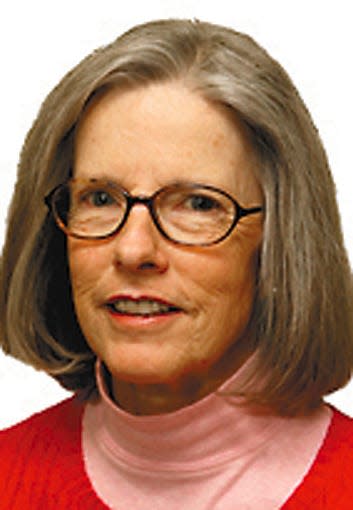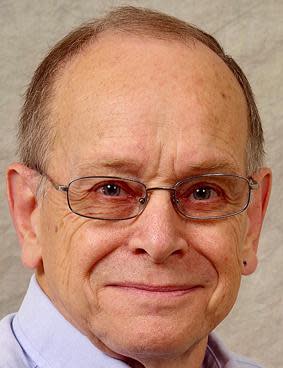Roundtable: What should U.S. do about climate change?
Human activities are contributing to record breaking heat this summer in Europe and the United States and the heat is expected to worsen in the coming decades. What role does the United States have to reduce green house gas emissions?

Fossil fuels are bad for our planet
The United States is the world's leading economy by far displaying both capitalism and socialism. The socialist part of our economy is intervening for the sake of the public good. Protecting our food, water, air, and land is the socialist part of the government crucial for our overall safety. These two principles can co-exist. The problem arises if we are only thinking in terms of immediate payoffs and short-term gains as none of that matters if we don't have a planet that is habitable.The United States must take the lead in eliminating carbon emissions so other countries will follow. There's no such thing as clean coal or safe fracking. Some of the major oil companies are investing more in renewable energy, but others are sticking with profit-generating fossil fuels. "Drill, baby, drill" was the most idiotic and irresponsible catchphrase that contributed to global warming. The more fossil fuels we use, the worse it is for our planet. Creating jobs and technology that save the environment is essential to our survival. — John Hunigan

Humans not causing climate change
I don’t buy into the premise that climate change is caused by human beings! Consider: there is evidence that the planet has been much colder, on average, than it is today and it has also been much warmer at other periods, even before humans existed. Climate change has been going on since the planet was formed and it will continue regardless of what we do or don’t do. Whatever we do to try to stop it will be expensive and accomplish nothing positive.
Most readers today were not around in the 1950s and 1960s when there was real pollution. Pittsburg was a grey city with all the smoke from the steel-mills and automobiles were getting something like 8 to 12 mpg. (I drove a VW bug at over 25 mpg.)
The very best thing that the United States can do is stop the politicians and panic-mongers from emitting so much hot air. — Charlie Gruner

Decrease dependence on fossil fuels, increase clean energy
In 1787, the year of our constitutional convention, the winter was so cold the ground froze as far as Savannah. In Philadelphia that year the average temperature was 52 degrees Fahrenheit; it’s now 60 degrees. There’s no dispute about warming; the American Medical Association recently declared climate change a public health crisis.
Before Donald Trump withdrew the United States from the nearly 200 nation climate accord, we were gradually and cooperatively figuring out how to confront the problem while continuing to maintain our energy supply. Shortly after he backed out a trillion ton iceberg the size of Delaware broke off of Antarctica. Our national goal should be to maintain our supplies using gradually decreasing amounts of fossil fuels and to support incentives to speed up the development of cleaner ways to produce energy, but there’s no way to get from here to there without using fossil fuels in the meantime. Because of Putin’s invasion of Ukraine, we also need to be prepared to help Europe withstand the anticipated shortages the International Energy Agency is warning about. European leaders have already signed deals with Azerbaijan, Algeria, and the United Arab Emirates, we should prepare to help them. — Laurie Muelder

The scope of the worldwide interventions needed to reduce greenhouse gas emissions enough to slow atmospheric warming and its catastrophic effects and the speed with which they need to be implemented are truly daunting, but so are the consequences of failure. We are headed toward a world unlike any that humans have experienced in our 200,000-year history. Even children born today will experience hotter and more tumultuous conditions than current societies are prepared to handle. On the evidence so far, our government and corporate leaders do not have the political will to enact the drastic measures that the situation calls for — rapid transition of the national and world economy away from fossil fuels to renewables, crash programs of energy efficiency, as well as steps to protect us from the changes already under way — heat, superstorms, fires, sea-rise. To be fair, the leaders of most other nations are equally inadequate. If these changes are to happen democratically, the people must demand them, which seems unlikely. We are frogs in the warming pot. Yet we must persist, against the odds. Otherwise, the best we can hope for is that the changes will be forced on us undemocratically, amid the breakdown of social order. — David Amor

Need new technologies Asia, Africa and South America can use
Every one of us is familiar with the extreme climate changes of the geologic past, but the complicated causes for that and even for recent weather events will probably puzzle us for our lifetimes.
Over the years reports of record-breaking temperatures in the United States usually mentioned outdoing heat waves from the 1890s or 1930s. What was going on then? London had a record high on Tuesday. It also had one in 1911. The United States cannot compensate for global warming by itself. The nations in Africa, Asia, and South America want our standard of living, and they have growing populations. We need new technologies that they can use to produce power without generating excessive carbon dioxide, but without aggravating our voters so much that they resist dealing with the problem.
We should learn to adapt, we might use more nuclear energy, and we must reject divisive political hyperbole. — William Urban

Increase in world population is impacting planet
“Human activities are contributing to record breaking heat …” and with that opening, Tom Martin probably lost several members of the roundtable group and at least 50% of hardline Republicans. The United States won’t do much of anything now to even impact a single flatulent cow. The new Supreme Court ruling on EPA overreach hamstrung the Feds. In 1950 there were about 2.5 billion humans consuming resources. By November of this year the number will be 8 billion. That number of people will impact the planet. To what degree though? I can’t give you a number because most will argue to death on the belief that it is even happening. I get it, the climate is cyclical.
We do know about historical extreme climate changes (five ice ages). But on the other side some cling to the idea that an ark carried animals two by two including velociraptors (God provides?). We know that Arctic Sea ice is still eroding and 2022 looks to be on pace to a new record low. Build another ark? Yet, the southwest clings to the idea that Lake Mead and Lake Powell will fill up to support another 1 million warm bodies fleeing to Arizona. No ark needed! Now, at least Europeans know how it feels to live in the arid West. We have elephant eye high corn all around us so it will be all ok. Right? — Stephen Podwojski

U.S. making progress, but rest of world still polluting
Let’s do everything we can right now! Heat with only solar power. Generate electricity from nothing but windmills and pond scum. Ban gas powered cars and only allow electric cars for trips of more than five miles. Any less than that, you must walk. Get rid of airplanes and cross the ocean only in sailboats.
After we do all that, it will be a lot easier to see the black coal smoke rising from the power plants in China and the blue auto exhaust fumes from India.
Since 2005, the EPA reports that the United States has cut our greenhouse gas emissions by 12%. It may make the world feel virtuous to sign the Paris Accords, but producers like China and India have done nothing to curb their pollution.
We are responsibly reducing our CO2 release but until the rest of the world does a lot more, things will not change. — Harry Bulkeley
The Community Roundtable runs each Sunday and is made up of local writers. Community writers answer one question each week in 150 words or fewer.
This article originally appeared on Galesburg Register-Mail: Greenhouse gas: What should U.S. do about climate change?

